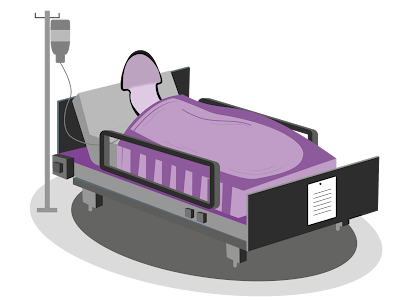Exploring the Age Demographics of Erectile Dysfunction: Insights from Statistical Analysis
Erectile dysfunction (ED) is a prevalent medical condition affecting millions of men worldwide. As the name suggests, it is the condition where one is unable to achieve or maintain an erection sufficient for a satisfactory sexual experience. While ED is commonly associated with aging, its relationship with age remains a topic of significant interest and debate. In this article, we will get into the age demographics of erectile dysfunction, risk factors, and potential underlying causes across different age groups.
Prevalence of Erectile Dysfunction
ED is a multifactorial condition, and it's believed to be found more in older men. However, it is essential to understand the differences in prevalence rates across various age groups to understand the relationship between age and ED. To explore this, let us look into the findings of several large-scale epidemiological studies that have examined the prevalence of ED in different age brackets.
ED age group analysis in a
study was found to be at 17.7% in men aged 40 to 49, 27.3% in men aged 50 to
59, 42.3% in men aged 60 to 69, and 75% in men aged 70 years and older.
In another study, it was
found that men older than 40 are three times as likely to experience complete
ED than younger men.
ED is increasingly becoming more common in young men. It was previously believed that only 5% to 10% of men younger than 40 experienced ED. But a more recent study showed that ED was prevalent in 26% of men younger than 40.
During another research in
India, about 30 percent of men below the age of 40 years had erectile disorder.
And a whopping 53 percent of men didn't even know the symptoms of erectile dysfunction.
Risk Factors and Age-Related Changes
The increased prevalence of erectile dysfunction with age can be attributed to several risk factors that accumulate over time. Age-related physiological changes, such as decreased blood flow, hormonal alterations, and reduced nerve sensitivity, can contribute to the development of ED. Additionally, older men are more likely to have chronic conditions, such as cardiovascular diseases, diabetes, and high blood pressure, which are known risk factors for ED.
Studies have demonstrated
that age remained significantly associated with ED even after adjusting for
common risk factors like diabetes and hypertension. This suggests that
age-related changes in the body play a crucial role in the development of
erectile dysfunction.
Psychological Factors and Age
Beyond physiological factors, psychological aspects can also influence the occurrence of ED. Performance anxiety, stress, depression, and relationship issues are some psychological factors that can contribute to ED across all age groups. However, the impact of these psychological factors may differ concerning age.
In younger men, performance anxiety and psychological stress may be more prevalent, as they may have higher expectations or face societal pressure related to sexual performance. In contrast, older men might experience ED due to a combination of age-related physiological changes and psychological factors like depression or relationship issues, which become more common with age.
A study examined the
influence of age on the relationship between psychological factors and ED. The
results indicated that psychological factors were more strongly associated with
ED in younger men, while older men showed a stronger connection between ED and
physiological factors. This suggests that age might modulate the interplay
between psychological and physiological factors contributing to ED.
Exploring Lifestyle Factors
In addition to age and
physiological changes, lifestyle factors play a significant role in the
development of erectile dysfunction. Unhealthy habits, such as smoking,
excessive alcohol consumption, lack of physical activity, and a poor diet, can
increase the risk of ED across all age groups.
Causes of erectile dysfunction
Having a clear understanding of the possible causes of erectile dysfunction can help you identify the condition and lead a healthier lifestyle.
The causes of erectile
dysfunction in younger men can be multifaceted, encompassing both physical and
psychological factors. Some common underlying causes include:
●
Psychological Factors: Performance
anxiety, stress, depression, and relationship issues can all contribute to ED
in younger men. Performance anxiety, in particular, is a common trigger for
occasional episodes of ED in otherwise healthy young individuals.
●
Lifestyle Habits: Unhealthy lifestyle
habits, such as excessive alcohol consumption, smoking, and drug use, can
negatively impact sexual function in younger men.
●
Underlying Medical Conditions:
Chronic conditions like diabetes, hypertension, and obesity can also lead to ED
in younger men.
●
Medication Side Effects: Some medications
used to treat various health conditions can have adverse effects on erectile
function.
●
Hormonal Imbalances: While less common,
hormonal imbalances, such as low testosterone levels, can contribute to ED in
younger men.
These are possible causes
of erectile dysfunction. However, if you find out there are fewer or no
erections for quite some time, it is highly advised to visit a sexologist.
Interventions for Erectile Dysfunction in Younger Men
Erectile dysfunction will
need external assistance, and you should know that erectile dysfunction treatment is
possible. Addressing erectile dysfunction in younger men often involves a
combination of lifestyle changes, psychological support, and, if necessary,
medical interventions. Here are some strategies that can be effective in
managing ED in younger populations:
●
Lifestyle Modifications: Encouraging young
men to adopt a healthier lifestyle can significantly improve erectile function.
Quitting smoking, reducing alcohol consumption, maintaining a balanced diet,
and engaging in regular physical activity can all contribute to better sexual
health.
●
Psychological Support: Addressing
psychological factors such as performance anxiety and stress is crucial for
younger men experiencing ED. Psychological counseling, sex therapy, or couples
therapy can be beneficial in resolving underlying emotional issues.
●
Medical Interventions: In cases where
lifestyle changes and psychological support are insufficient, medical treatments
may be considered. Erectile dysfunction medicine can enhance blood
flow to the penis, facilitating erections. However, it is essential to consult
a sexologist before using any medication.
●
Hormone Therapy: In rare cases where
hormonal imbalances are identified as the cause of ED, hormone replacement
therapy may be considered under the guidance of a healthcare provider.
●
Vacuum Erection Devices and Penile Implants: For men who do not respond to other treatments, vacuum erection devices
or surgical penile implants may be options to consider. These can help in
improving blood flow for a short while.
Exercises for improving erectile dysfunction
Regular physical activity
has numerous benefits for overall health, and it can also have a positive
impact on sexual function. Engaging in exercises that target the pelvic floor
muscles, improve cardiovascular health, and boost circulation can enhance
erectile function and help manage ED.
●
Kegel Exercises:
Kegel exercises, also known as pelvic floor exercises, focus on strengthening the pelvic floor muscles. These muscles play a crucial role in controlling the flow of urine and ejaculate and are also involved in achieving and maintaining erections.
Consistent
practice of Kegel exercises can help improve the strength and endurance of the
pelvic floor muscles, potentially leading to better erectile function and
control over ejaculation.
●
Aerobic Exercises:
Aerobic exercises, such as brisk walking, jogging, cycling, swimming, and dancing, are excellent for cardiovascular health. These activities improve blood circulation throughout the body, including the genital area, which is crucial for achieving and maintaining erections.
Aim
to engage in at least 150 minutes of moderate-intensity aerobic exercise or 75
minutes of vigorous-intensity exercise per week, as recommended by health
guidelines. Regular aerobic activity can help reduce the risk of ED and improve
overall sexual health.
●
Yoga:
Yoga
combines exercise, breathing techniques, and meditation. It can help reduce
stress, improve flexibility, and enhance blood flow, all of which can
positively influence erectile function.
Addressing the Stigma
One significant challenge for younger men experiencing erectile dysfunction is the potential stigma associated with the condition. ED can be wrongly perceived as a problem limited to older individuals, leading to embarrassment and reluctance to seek help. Raising awareness and promoting open discussions about sexual health, including ED, can help reduce the stigma and encourage younger men to seek timely support and treatment.
Bottom Line
In conclusion, erectile dysfunction is a complex medical condition influenced by a myriad of factors, including age. Statistical analysis of large-scale epidemiological studies has shown a clear increase in the prevalence of ED with advancing age. Age-related physiological changes, coupled with lifestyle factors and psychological issues, contribute to the development of ED in various age demographics.
As men age, it becomes essential to address not only physiological factors but also lifestyle modifications and psychological support to effectively manage and treat ED. Further research in this area will continue to provide valuable insights into the complexities of ED and pave the way for improved strategies to enhance the sexual health and well-being of men across all age groups. If you looking for the best sexologist in India for Erectile dysfunction treatment, you can visit Dr. Arora's Clinic Pvt Ltd for 100% privacy and secure treatment.






Comments
Post a Comment